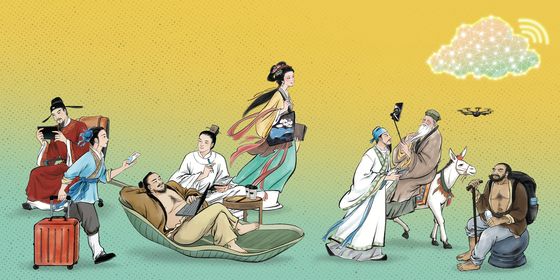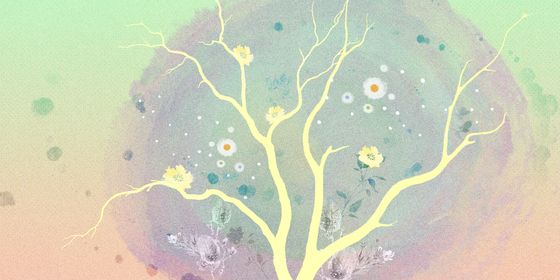Ancient idioms were not kind to females
Every August 26 is celebrated as Women’s Equality Day in the US, which commemorates the day when women were granted the right to vote by the US constitution in 1920. Even today, people around the world continue fighting for women’s rights: whether it’s through the #Metoo campaign, by advocating gender inequality in the workplace, or by resisting everyday mansplaining.
But let’s face it, the history of gender inequality left traces everywhere, including daily language. Today, let’s talk about some sexist chengyu.
Note: The chengyu and their explanations below originate from historical texts, and do not represent TWOC’s views on gender.
红颜祸水 Femme fatale
Literally meaning “beauty that is the source of calamity,” this chengyu exclusively refers to women. In history, many beautiful women were accused of being baleful influences who could destroy a (male) hero or even an empire—though they were never the decision-makers, and there were no similar accusations for ancient “pretty men”.
人老珠黄 Age like pearls yellowing
Beauty fades, as does the sheen of pearls. This is a derogatory chengyu describes (only) women who’ve lost their looks as they age—the All-China Women’s Federation to infamously compared so-called “leftover women” to “yellowed pearls.”
Every woman will one day lose their beauty like pearls will finally become yellow.
Měigè nǚrén dōu yǒu rénlǎo zhūhuàng de yìtiān.
每个女人都有人老珠黄的一天。
水性杨花 Flighty like the poplar blossom
Virtuous women were supposed not to have many romantic experiences. Instead, they should “be loyal to one person until death (从一而终).” If they couldn’t stay “loyal,” they were likely to be shamed by being called a “flighty poplar blossom.”
Most women are as flighty as poplar blossoms.
Dàfán nǚrén dōu shì shuǐxìng yánghuā.
大凡女人都是水性杨花。
残花败柳 Faded flowers and withered willows
This chengyu is often used as a metaphor to describe “fallen women,” including those of loose morals, or have lost their virginity before marriage.
妇人之仁 Women’s benevolence
This chengyu sounds like a compliment, but it actually means over-the-top sentimentality.
He only has a woman’s soft heart, and lacks of a man’s resolve.
Tā zhǐyǒu fùrén zhī rén, què méiyǒu nánrén de juéduàn.
他只有妇人之仁,却没有男人的决断。
妇孺皆知 Even women and children know
In ancient China, women usually didn’t have access to education, and rarely communicated with those outside their family, as people believed that “A woman without intelligence is virtuous (女子无才便是德).” This chengyu refers to something that is so well-known, even women and children have heard of it:
Even women and children have heard of the news. How could you not know?
Zhè jiàn shì fùrú jiē zhī, nǐ zěnme huì bùzhīdào?
这件事妇孺皆知,你怎么会不知道?
夫唱妇随 The husband sings and the wife follows
In the traditional concept of domestic harmony, the wife is required to be the husband’s echo. According to the ancient stardards, women did not need to think or act independently, but just need to obey the male members if their family—whether that’s their father, brother, husband, or son.
相夫教子 Assist one’s husband and bring up the children
This chengyu points out the priority for a woman in ancient China was to support her husband and raise their children. If they can’t do this well, they would be divorced by their husband (never the other way around), which was regarded as a shame for a woman.
Her biggest dream is to assist her husband and bring up their children, and live an ordinary life.
Tā zuìdà de mèngxiǎng jiù shì xiàngfū jiàozǐ, guòzhe píngfán de shēnghuó.
她最大的梦想就相夫教子,过着平凡的生活。
贤妻良母 A virtuous wife and good mother
If a woman is good at 相夫教子, she is given this compliment, which can be heard even today. To be fair, this chengyu does not necessarily discount the woman’s other values. Still, since this term emphasizes a woman’s role in her family rather than her individual worth, so use with caution.
Everyone believes she is a good wife and great mother. No one expected her to get divorced.
Suǒyǒu rén dōu juéde tā shì yí wèi xiánqī liángmǔ, shéi yě méi xiǎngdào tā huì líhūn.
所有人都觉得她是一位贤妻良母, 谁也没想到她会离婚。












